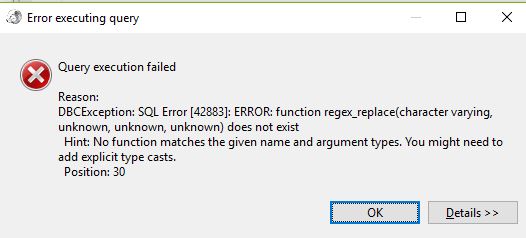Since version 12 - that's 2 years + 4 months ago at the time of writing (but after the last edit that I can see on the accepted answer), you could use a GENERATED FIELD to do this quite easily on a one-time basis rather than having to calculate it each time you wish to SELECT a new po_number.
Furthermore, you can use the TRANSLATE function to extract your digits which is less expensive than the REGEXP_REPLACE solution proposed by @ErwinBrandstetter!
I would do this as follows (all of the code below is available on the fiddle here):
CREATE TABLE s
(
num TEXT,
new_num INTEGER GENERATED ALWAYS AS
(NULLIF(TRANSLATE(num, 'ABCDEFGHIJKLMNOPQRSTUVWXYZ. ', ''), '')::INTEGER) STORED
);
You can add to the 'ABCDEFG... string in the TRANSLATE function as appropriate - I have decimal point (.) and a space ( ) at the end - you may wish to have more characters there depending on your input!
And checking:
INSERT INTO s VALUES ('2'), (''), (NULL), (' ');
INSERT INTO t VALUES ('2'), (''), (NULL), (' ');
SELECT * FROM s;
SELECT * FROM t;
Result (same for both):
num new_num
2 2
NULL
NULL
NULL
So, I wanted to check how efficient my solution was, so I ran the following test inserting 10,000 records into both tables s and t as follows (from here):
EXPLAIN (ANALYZE, BUFFERS, VERBOSE)
INSERT INTO t
with symbols(characters) as
(
VALUES ('ABCDEFGHIJKLMNOPQRSTUVWXYZ0123456789')
)
select string_agg(substr(characters, (random() * length(characters) + 1) :: INTEGER, 1), '')
from symbols
join generate_series(1,10) as word(chr_idx) on 1 = 1 -- word length
join generate_series(1,10000) as words(idx) on 1 = 1 -- # of words
group by idx;
The differences weren't that huge but the regex solution was consistently slower by about 25% - even changing the order of the tables undergoing the INSERTs.
However, where the TRANSLATE solution really shines is when doing a "raw" SELECT as follows:
EXPLAIN (ANALYZE, BUFFERS, VERBOSE)
SELECT
NULLIF(TRANSLATE(num, 'ABCDEFGHIJKLMNOPQRSTUVWXYZ. ', ''), '')::INTEGER
FROM s;
and the same for the REGEXP_REPLACE solution.
The differences were very marked, the TRANSLATE taking approx. 25% of the time of the other function. Finally, in the interests of fairness, I also did this for both tables:
EXPLAIN (ANALYZE, BUFFERS, VERBOSE)
SELECT
num, new_num
FROM t;
Both extremely quick and identical!


